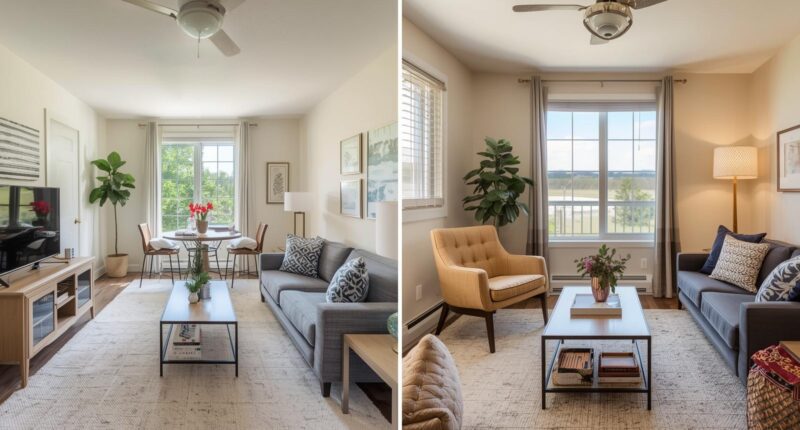Rental Property vs. Airbnb: Which Brings Higher Returns?
Real estate investors often ask the same question: Rental Property vs. Airbnb: Which Brings Higher Returns? Traditional long-term rentals and short-term Airbnb hosting both offer unique benefits, risks, and profit opportunities. Choosing the right strategy depends on your financial goals, location, and management style.
Why Compare Rental Property vs. Airbnb: Which Brings Higher Returns?
Understanding Rental Property vs. Airbnb: Which Brings Higher Returns? is critical because your investment approach determines cash flow, stability, and long-term wealth growth.
-
Rental property (long-term leases) provides steady, predictable monthly income.
-
Airbnb (short-term rentals) can generate higher income but requires active management and adaptability.
By comparing both, investors can decide which model fits their lifestyle and financial goals.
Rental Property: The Traditional Approach
Long-term rentals are one of the oldest and most reliable real estate strategies. Investors lease properties to tenants for months or years.
Advantages:
-
Predictable monthly income
-
Lower vacancy risks
-
Less active management (with property managers)
-
Easier financing approval
Challenges:
-
Slower cash flow growth
-
Limited ability to adjust rent quickly
-
Tenant issues may require legal actions
Airbnb: The Modern Short-Term Model
Airbnb and other vacation rental platforms have transformed real estate investing. By hosting short-term guests, property owners can charge higher nightly rates compared to long-term rentals.
Advantages:
-
Potentially higher income in tourist-heavy areas
-
Flexibility to use property personally when not rented
-
Dynamic pricing models to maximize revenue
-
Attractive to investors in popular travel destinations
Challenges:
-
Seasonal demand fluctuations
-
Requires active management and guest services
-
Higher maintenance and cleaning costs
-
Possible regulatory restrictions in some cities
Table: Rental Property vs. Airbnb – Which Brings Higher Returns?
| Criteria | Rental Property (Long-Term) | Airbnb (Short-Term) |
|---|---|---|
| Income Potential | Moderate but stable | High (depends on occupancy) |
| Vacancy Risk | Low | Medium to High |
| Management Effort | Low (monthly oversight) | High (frequent turnover) |
| Expenses | Lower ongoing costs | Higher cleaning/maintenance |
| Flexibility | Low (fixed leases) | High (owner can block dates) |
| Regulations | Standard landlord-tenant laws | Varies by city/country |
| Best For | Passive income investors | Active, hands-on investors |
This table highlights the differences in Rental Property vs. Airbnb: Which Brings Higher Returns?, showing how returns vary by effort, risk, and location.
Factors That Influence Returns
When analyzing Rental Property vs. Airbnb: Which Brings Higher Returns?, consider these factors:
-
Location – Airbnb thrives in tourist and urban areas; rentals work in stable suburban markets.
-
Occupancy rates – Airbnb income depends on high booking rates.
-
Regulations – Some cities restrict short-term rentals, reducing Airbnb profitability.
-
Operating costs – Airbnb requires cleaning, furnishing, and marketing expenses.
-
Lifestyle choice – Investors wanting passive income often prefer long-term rentals.
Which Strategy Is Right for You?
-
Choose rental property if you want stability, low involvement, and steady long-term growth.
-
Choose Airbnb if you want higher returns, enjoy hospitality management, and are comfortable with potential seasonal risks.
For many investors, a hybrid strategy works best—keeping some properties for long-term rentals while using others for Airbnb hosting in high-demand areas.
Internal and External Resources
👉 For more property investing insights, read:
5 Profitable Real Estate Investment Strategies
👉 For official Airbnb business insights, visit the Airbnb Investor Relations Page:
Airbnb Investor Resources
Final Thoughts on Rental Property vs. Airbnb: Which Brings Higher Returns?
The debate over Rental Property vs. Airbnb: Which Brings Higher Returns? doesn’t have a one-size-fits-all answer. Long-term rentals offer reliability and simplicity, while Airbnb can generate higher profits but demands more time and energy.
Ultimately, the best choice depends on your investment style, risk tolerance, and property location. Many investors find success by diversifying—using both strategies to balance consistent income with high-return opportunities.









